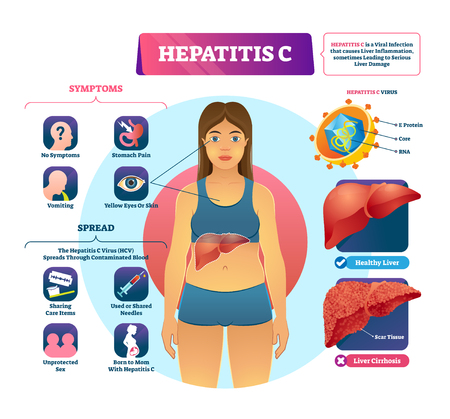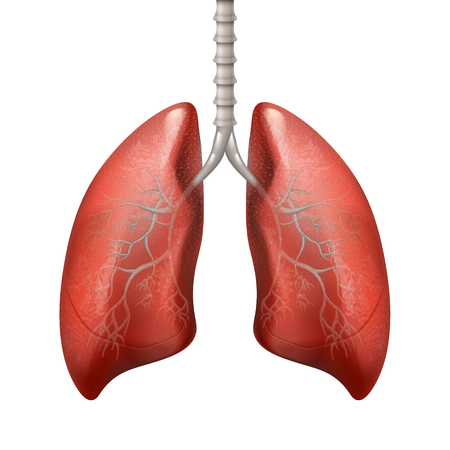Overview of Back Pain in the UK
Back pain is a widespread issue across Britain, affecting people from all walks of life. Recent studies estimate that nearly 80% of adults in the UK will experience back pain at some stage, making it one of the most common reasons for GP visits and sick leave. The impact on daily life can be significant, ranging from mild discomfort to severe limitations in mobility and activity. Many Britons find that back pain disrupts work, family responsibilities, and cherished leisure activities—whether it’s gardening at the weekend or enjoying a stroll in the countryside. Culturally, there is often a stoic approach to managing pain in the UK; people may try to “just get on with it,” sometimes delaying seeking professional help. This attitude, while admirable for its resilience, can unfortunately lead to prolonged suffering or worsening conditions if underlying issues are not addressed. Understanding the scope and effects of back pain within British society is essential for recognising when self-management isn’t enough and expert intervention is required.
Common Causes of Back Pain
Back pain is a widespread issue in the UK, affecting people from all walks of life. Understanding the root causes is key to managing and preventing discomfort. For many Brits, daily habits and work routines play a significant role. Lets take a closer look at the most common culprits behind back pain, particularly those relevant to life in the UK.
| Cause | Description | Relevance to UK Lifestyle |
|---|---|---|
| Poor Posture | Sitting or standing incorrectly for long periods can strain your spine and muscles. | Many office workers spend hours at desks without proper ergonomic support. |
| Sedentary Lifestyle | Lack of physical activity weakens core muscles that support your back. | With remote working and increased screen time, movement often takes a back seat. |
| Manual Work | Lifting heavy objects or repetitive physical tasks can lead to muscle strain or injury. | Common among tradespeople, delivery drivers, NHS staff, and warehouse workers. |
| Sports Injuries | Sudden movements, impacts, or overuse during exercise can cause acute or chronic back problems. | Popular UK sports like rugby, football, and even cycling come with their own risks. |
| Other Factors | Obesity, stress, poor sleeping habits, and underlying health conditions contribute as well. | The British diet and high-stress urban living can exacerbate these issues. |
Poor Posture: A Modern British Problem?
With so many of us hunched over laptops or glued to our phones, its no surprise that posture-related back pain is on the rise. Whether youre commuting on the Tube or working from a café in Manchester, being mindful of your alignment can make all the difference.
The Impact of Sedentary Lifestyles
The shift towards remote work has seen many Brits swap commutes for kitchen tables. While convenient, this often means less movement throughout the day. Regular breaks and gentle stretching are essential to counteract inactivity.
Manual Labour: Not Just Heavy Lifting
If you work in construction, healthcare, or logistics, repetitive motions are just as likely to cause issues as lifting something too heavy. Learning safe techniques and using proper equipment can help protect your back.
Dont Forget Everyday Habits
Lifestyle factors such as weight management, stress reduction, and sleep hygiene are often overlooked but play a crucial part in back health. Little changes—like choosing supportive footwear or investing in a good mattress—can pay off significantly over time.

3. Recognising the Symptoms
Back pain can manifest in a variety of ways, and understanding these symptoms is crucial for managing your health effectively. In the UK, it’s common to experience occasional backaches due to factors like long commutes, sedentary office work, or even gardening on a weekend. However, not all back pain is created equal, and recognising when discomfort is more than just a minor nuisance can make all the difference.
Minor back pain often presents as a dull ache or stiffness, typically improving with rest or gentle movement. This sort of discomfort may occur after lifting something heavy, overexerting yourself during exercise, or even sleeping awkwardly. You might notice the pain eases within a few days and doesn’t interfere significantly with your daily activities.
However, there are symptoms that suggest your back pain could be linked to something more serious. Watch out for persistent or severe pain that doesn’t improve with rest, especially if it spreads down your legs or is accompanied by numbness or tingling. Sudden onset of weakness in your legs, problems controlling your bladder or bowels, or unexplained weight loss alongside back pain are also red flags. These could indicate underlying conditions such as nerve compression, infections, or even issues with internal organs.
It’s important to listen to your body and pay attention to any changes in your symptoms. If you’re unsure whether your back pain is something to worry about, erring on the side of caution and seeking professional advice from an NHS GP or physiotherapist is always a wise move. Early recognition and appropriate action can help prevent minor niggles from developing into long-term problems.
4. Home Remedies and Self-Care Tips
When it comes to managing mild back pain at home, British readers can benefit from a mix of practical advice, NHS-backed guidance, and time-tested remedies popular across the UK. For most people, back pain is not caused by anything serious and can be improved with some simple self-care strategies. Here’s how you can take action:
NHS-Recommended Self-Care Strategies
The NHS encourages people with mild or moderate back pain to stay as active as possible. Resting for long periods may actually make things worse. Instead, gentle movement helps keep your muscles flexible and supports recovery. Applying a hot water bottle or heat pad to the affected area can also help ease discomfort.
| Remedy | Description | When to Use |
|---|---|---|
| Staying Active | Light walking, gentle stretches, or continuing with daily activities within comfort levels | Most cases of mild back pain; avoid bed rest unless pain is severe |
| Heat Therapy | Hot water bottle or heat pads placed on the sore area for 15-20 minutes at a time | To relieve muscle tension or spasm |
| Pain Relief Medication | Over-the-counter options like paracetamol or ibuprofen (if suitable) | If pain interferes with daily life; always follow dosage instructions |
| Posture Improvement | Pilates, yoga, or mindful sitting/standing positions recommended by physiotherapists | For ongoing prevention and recovery support |
Popular Home Remedies in the UK
Anecdotally, many Brits swear by Epsom salt baths to soothe aching backs after a long day or using topical gels containing menthol for a cooling effect. Some also use wheat bags as an alternative to traditional hot water bottles for targeted warmth.
Rest vs. Activity: Striking the Right Balance
It’s tempting to just lie down when your back is sore, but evidence suggests that too much rest can slow your recovery. The key is to keep moving gently—think light walks around the park or stretching in your living room—without pushing through sharp or worsening pain. Listen to your body: if an activity aggravates your symptoms, scale it back.
When Self-Care Isn’t Enough
If your back pain doesn’t improve after a couple of weeks despite home remedies—or if you experience symptoms like numbness, tingling, weakness in your legs, or problems controlling your bladder or bowels—it’s time to speak to your GP or a specialist. Early intervention ensures you get the right support and peace of mind.
5. When to Seek a Specialist in the UK
Recognising Red Flag Symptoms
While most episodes of back pain resolve with self-care and patience, certain symptoms should never be ignored. In the UK, these “red flag” signs include severe or worsening pain despite rest, unexplained weight loss, fever, night sweats, numbness or weakness in the legs, loss of bladder or bowel control, or a history of cancer. If you experience any of these symptoms, it’s crucial to seek urgent medical attention—either by contacting your GP or heading to A&E.
Navigating the NHS and Private Healthcare Options
For non-urgent but persistent back pain (lasting more than six weeks), your first port of call is usually your GP. They can assess your symptoms and refer you for further investigations or to a specialist if needed. Waiting times on the NHS can vary, especially for imaging like MRI scans or appointments with orthopaedic surgeons, rheumatologists, or physiotherapists. If your symptoms are impacting your quality of life and you prefer not to wait, private healthcare may offer quicker access—though at a cost. Many people in the UK opt for a combination: seeking initial assessment via the NHS, then exploring private consultations if necessary.
Choosing the Right Specialist
The type of specialist you need depends on your symptoms. For nerve-related issues (like sciatica or numbness), a neurologist or spinal surgeon may be appropriate. For musculoskeletal problems without nerve involvement, an orthopaedic consultant or rheumatologist might be best. Physiotherapists play a key role in rehabilitation and pain management. It’s wise to research practitioners’ credentials, check for GMC registration (for doctors), HCPC registration (for physiotherapists), and seek recommendations from your GP or trusted sources.
Practical Steps for UK Patients
- Keep a symptom diary to track what makes your pain better or worse.
- Be clear about your expectations when seeing your GP—do you want advice, a referral, or specific investigations?
- If going private, compare consultation fees and ensure the clinic is CQC registered.
Final Thoughts
Back pain can feel overwhelming, but knowing when—and how—to seek help is empowering. The UK system offers multiple pathways; understanding them ensures you get the right care at the right time.
6. Prevention: Staying Active and Healthy
Daily Habits for a Healthy Back
One of the best ways to manage back pain is to prevent it in the first place. Simple daily habits can make a world of difference. Prioritise regular movement, whether that’s a brisk walk around your neighbourhood, gentle stretching each morning, or taking the stairs instead of the lift. When you’re sitting for long periods—whether working from home or in an office—try to stand up and stretch every 30–60 minutes. Even short breaks can help reduce stiffness and keep your back muscles flexible.
Ergonomics at Work: Office and Manual Jobs
For many in the UK, work can be a source of back trouble. If you have a desk job, set up your workspace so your screen is at eye level, your chair supports your lower back, and your feet rest flat on the floor. Don’t forget to adjust your chair height and keyboard position to avoid hunching. For those doing manual work, proper lifting technique is crucial: bend at the knees—not the waist—and keep loads close to your body. Use lifting aids when available, and don’t be shy about asking colleagues for help if something feels too heavy or awkward to move safely.
Making the Most of UK Community Resources
The NHS offers fantastic resources for managing and preventing back pain. Many local leisure centres provide affordable exercise classes like Pilates or yoga, which focus on strengthening core muscles that support your spine. Physiotherapists can offer tailored advice—ask your GP for a referral if you’re struggling with persistent discomfort. Don’t overlook community groups or charities such as BackCare UK, which provide information, helplines, and even local events focused on spinal health. These resources aren’t just for those already dealing with pain; they’re excellent tools for anyone keen to stay active and healthy.
Top Tips for Everyday Prevention
- Stay active—aim for at least 150 minutes of moderate activity each week as recommended by the NHS.
- Maintain good posture while sitting, standing, and moving.
- Avoid slumping on sofas or beds when watching telly or scrolling through your phone.
- If you drive regularly, adjust your seat to support your lower back properly.
- Listen to your body—if you feel strain or discomfort, take a break and gently stretch.
Final Thoughts
No one is immune to back pain, but small changes in daily habits can go a long way towards prevention. Whether you work behind a desk or on-site, look after your spine by staying active and making use of the support available here in the UK. Investing in your back health now means fewer aches down the line—and more freedom to enjoy life’s adventures.


